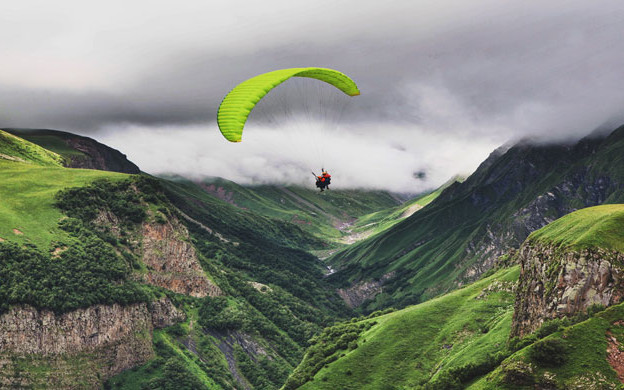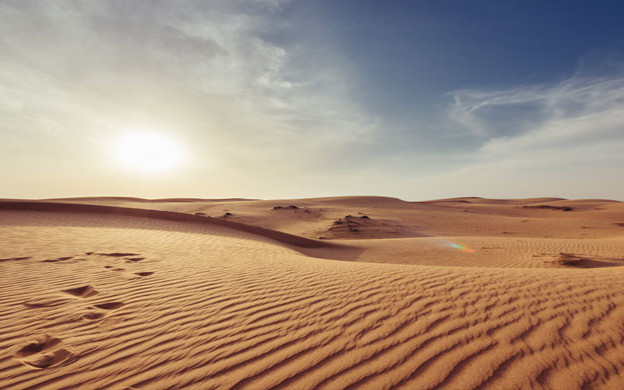Oman, trésor caché de l'Arabie
Explorez les merveilles naturelles et culturelles d'Oman.
Découvrez des paysages à couper le souffle et une riche histoire.
Oman : un voyage entre désert et mer d'une beauté rare
Hospitaliers et pacifiques, conduits par un sultan philanthrope, les Omanais reçoivent le voyageur dans un esprit de tolérance et d'ouverture. Rapidement, les voyageurs sont émerveillés par les paysages et les écosystèmes omanais : fjords vertigineux, montagnes abruptes entaillées de gorges, plages ourlées d'une mer turquoise, plaines rocailleuses, dunes rouges, oasis luxuriantes, wadis creusés de bassins d'eau pure... Un relief varié qui permet toutes les aventures (trekking, canyoning, méharée, 4x4...) et des centaines de kilomètres de côtes qui autorisent tous les plaisirs balnéaires (farniente, plongée sous-marine, croisière en boutre, observation des dauphins, des baleines ou des tortues marines...). Et pour pouvoir découvrir au mieux toutes les merveilles d'Oman, rien de tel qu'un voyage sur mesure organisé en direct avec une agence locale.
Découvrez l'authenticité d'une culture millénaire
Un voyage à Oman, c'est partir à la découverte de la terre native de Sinbad le marin et d'un creuset d'histoire du Moyen-Orient sur la péninsule arabique. Ce pays est riche en témoignages historiques grâce à ses nombreux forts, ses châteaux et ses villes anciennes. Chaque site raconte une partie de l'histoire fascinante de cette région, où les traditions et la modernité coexistent harmonieusement. Les paysages variés, des montagnes majestueuses aux déserts étendus, offrent également une expérience unique pour les voyageurs en quête d'aventure et de culture. Oman est une destination qui stimule l'imagination et éveille la curiosité des explorateurs modernes.

Les Incontournables à Découvrir
Mascate est l'une des capitales les plus fascinantes de la péninsule arabique grâce à son authenticité. Son architecture ancienne est remarquable avec trois forts principaux construits au 16ème siècle, le charmant quartier du vieux port et une médina pittoresque. Ne manquez pas de visiter le musée d'Oman qui retrace l'histoire du sultanat.
Sur est une paisible ville portuaire située à 150 km de Mascate. Ses superbes forts témoignent de son riche passé, et son chantier naval, où l'on fabrique de nombreux bateaux de pêche, atteste de son lien indéfectible avec la mer depuis des millénaires. Une visite au musée de la Marine vous permettra de mieux comprendre l'histoire de Sur.
Au nord-ouest d'Oman, sur plus de 200 km, le désert de Wahiba est impressionnant par ses dunes rouges. Grâce à une excursion organisée par une agence locale, vous pourrez découvrir ces paysages en 4x4 et rencontrer les Bédouins qui vivent dans le désert.

Explorer Oman autrement
Pour admirer les tortues marines, rendez-vous sur la plage de Ras al-Jinz. Dans cette réserve naturelle, on peut voir les tortues venir pondre et creuser leur nid. Elles viennent surtout entre juillet et octobre, mais aussi le reste de l'année. Il faut cependant venir la nuit, car les tortues ne pondent pas le jour. Accompagné d'un bon guide local et de lampes de poche, il est possible d'en apercevoir à condition de rester discret et de se tenir à distance. Moment magique garanti pour les amoureux de la nature !
Salalah est la deuxième ville du pays et elle a pour particularité d'être au cœur d'une région productrice d'encens. Le musée de l'encens, situé sur le site archéologique d'Al Balid, raconte l'histoire de sa production et tout le processus de fabrication à partir de la résine de l'arbre à encens.
Le souk est un des principaux attraits de la ville de Nizwa, ancienne capitale du Sultanat d'Oman construite à proximité de deux wadis. Doté d'une architecture traditionnelle préservée, il s'organise en différents quartiers selon les professions. L'artisanat omanais y a la part belle, tout comme l'encens et les spécialités culinaires locales. Une vraie caverne d'Ali Baba...
Un pays stable et sûr
Tous les faits divers ne sont pas recensés dans les journaux, mais la violence ne semble pas être une particularité du pays. La législation en cours punit très sévèrement les simples vols comme les délits plus importants, garantissant un effet dissuasif. Dès son accession au pouvoir, il y a plus de trente ans, le sultan a su calmer les tensions internes et prôner la tolérance, la paix et l'ouverture sur l'extérieur. Le sultanat est ainsi l'un des pays les plus sûrs du Golfe et sa stabilité politique est indiscutable.
Une présence policière discrète est assurée dans tout le pays et les frontières avec le Yémen sont étroitement surveillées, de même que les montagnes du Dhofar et du Djebel Akhdar. En raison d'une culture de l'échange fortement ancrée dans les mœurs depuis des millénaires, les Omanais sont d'un naturel très pacifique et ont su conserver la tradition d'accueil propre aux communautés nomades. Ils font preuve d'une grande bienveillance à l'égard des visiteurs étrangers qu'ils considèrent comme des hôtes privilégiés. Si une certaine vigilance est de rigueur comme partout dans le monde, on peut donc voyager au sultanat en toute sécurité et confiance et ne pas hésiter à accepter d'éventuelles invitations à boire le café : le kawa à la cardamome, accompagné de quelques dattes fraîches pour en réduire l'amertume, une institution !
A website by
Customize your trips with Quotatrip and receive tailor-made offers directly in your inbox.
Discover a country
Copyright 2025 © Quotatrip.